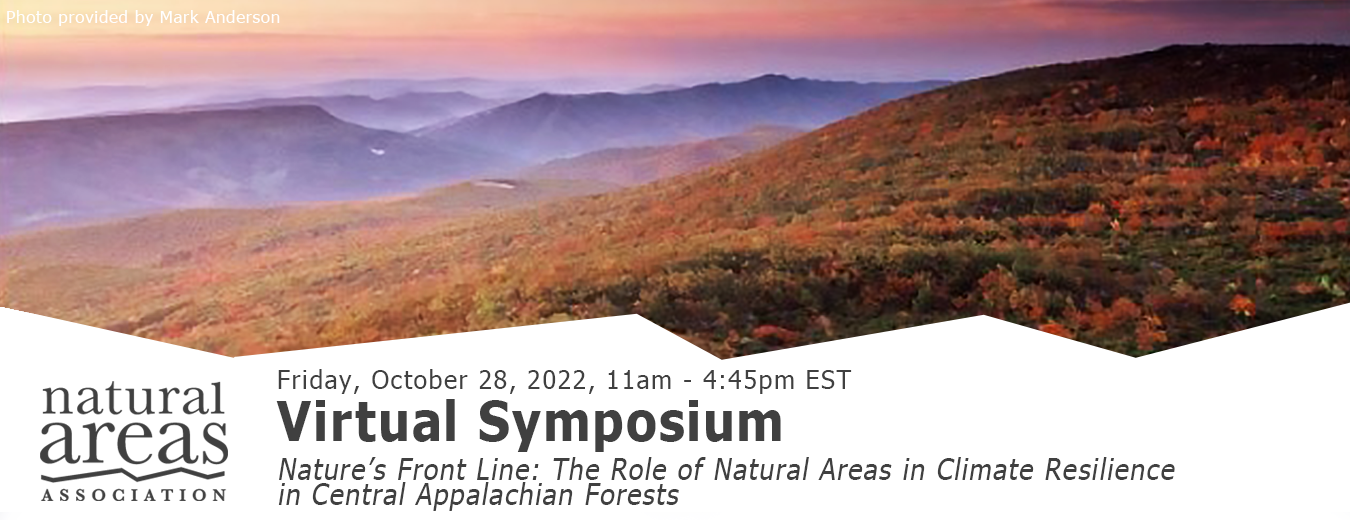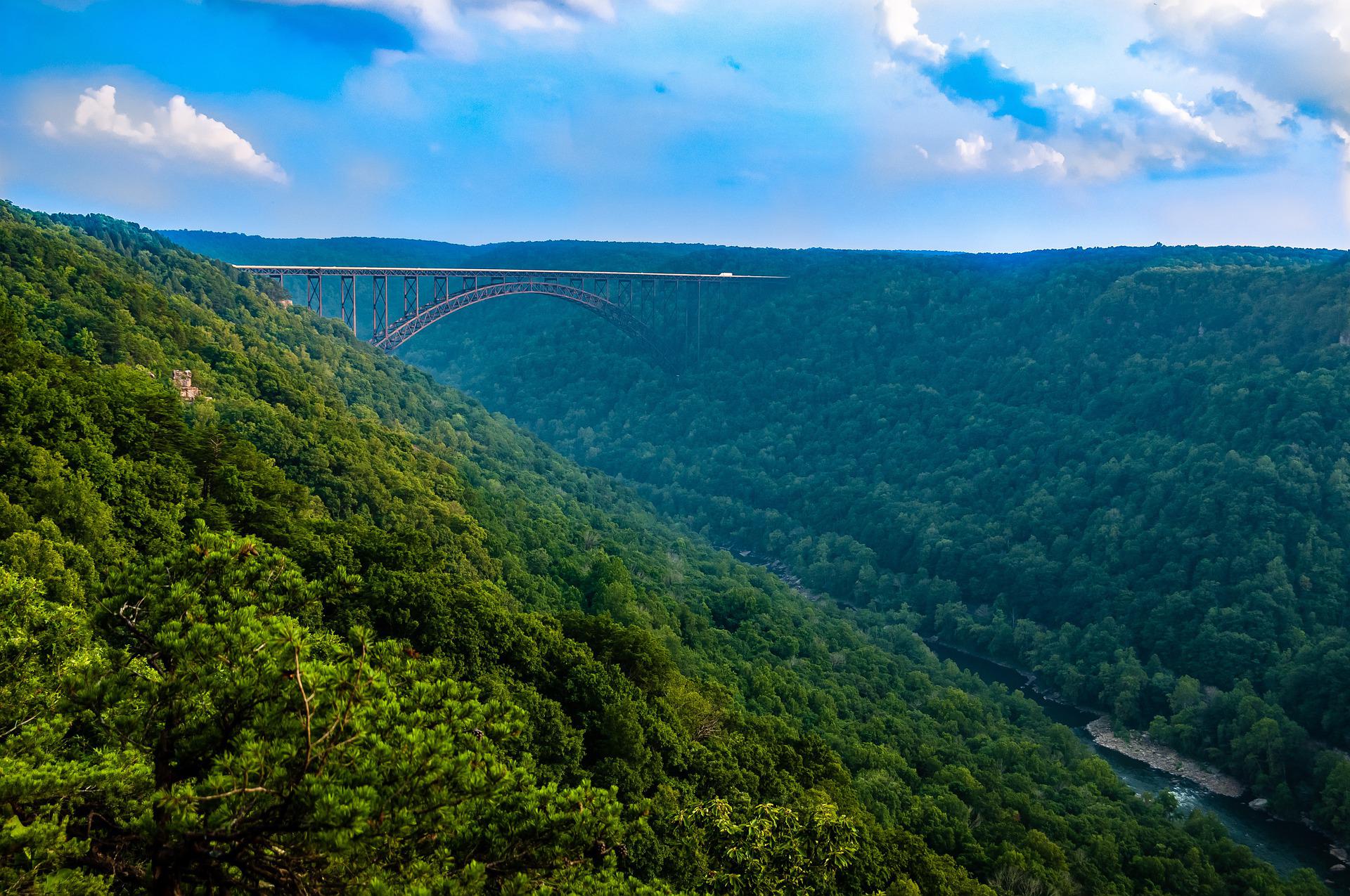
Edited video archive and additonal resources now available for purchase.
Nature's Front Line: The Role of Natural Areas in Climate Resilience in Central Appalachian Forests
Nature's Front Line considered the role of natural areas as a critical, strategic component to mitigating impacts of human-caused climate disruption. This program will equip practitioners with the information needed to inform management plans, educate policy makers, and enlighten the public on the vital role natural areas play in offsetting the impacts of climate change on our planet. Participants explored management techniques that maximize the resilience of natural areas to better protect biodiversity, sequester carbon, and maintain valuable ecological services.
Climate change is the great multiplier in natural areas management – exacerbating the impact of all other ecological stressors. This concept is not new to NAA members, and climate change related talks have been prominently featured at Natural Areas Conferences for decades. However, natural areas managers are often left with the questions, Now what? What can I do? In 2019, attendees of the Natural Areas Conference met in Pittsburgh, PA to consider the role of natural areas related to mitigating the impacts of global climate change, while adjusting approaches to land management to confront ecological stresses. At the time, this was an emerging area of science, creating more questions than answers.
 West Virginia
West VirginiaCarbon sequestration and storage
Habitat refugia for rare species
Improving watershed quality (maintaining water temperature, reducing flooding events)
Protecting rare plant communities and ecosystems
Examining the importance of biodiversity in carbon sequestration
Determining adequate buffers around protected resources
Preparing for greater invasive species threats.
Understanding the role and importance of prescribed fire
Improving connectivity of NAs to aid in species migrations
Balancing scientific value with recreational use
Examining regional NA portfolios – are habitats that are critical to future protection and conservation missing
Friday, October 28, 2022
| Time | Session | Speaker |
| 11:00 am - 11:15 am | Welcome & Overview | Executive Director Natural Areas Association |
11:15 am - 11:30 am | Chair, Science Advisory Committee Natural Areas Association | |
11:30 am - 11:45 am | Making the Case for the Role of Natural Areas in Climate Resilience: Learning Together | Regional Supervisor for the Mountain Region Virginia Heritage Program |
11:45 am - 12:25 pm | Director of Science Center for Resilient Conservation Science The Nature Conservancy, North America Region | |
12:25 pm - 12:35 pm | Q&A | Ryan Klopf, Ph.D. |
12:35 pm - 12:50 pm | Break | |
12:50 pm - 1:30 pm | Director, Biogeosciences Research Group Director of Environmental Sciences, B.A. Program Professor, Graduate School of Geography Adjunct Affiliation with the Department of Biology Clark University | |
1:30 pm - 1:40 pm | Q&A | Ryan Klopf, Ph.D. |
1:40 pm - 2:20 pm | Director of Conservation Research Open Space Institute | |
2:20 pm - 2:30 pm | Q&A | Ryan Klopf, Ph.D. |
2:30 pm - 2:45 pm | Break | |
2:45 pm - 3:25 pm | Professor, Assistant Department Head Geography Department Texas A&M University | |
3:25 pm - 3:35 pm | Q&A | Ryan Klopf, Ph.D. |
3:35 pm - 4:45 pm | Panel Discussion - Join us for a facilitated discussion with all of today's presenters. | All speakers & Ryan Klopf, Ph.D. |
4:45 pm | Conclusion | Lisa Smith |
Join the people who protect and manage our natural areas.